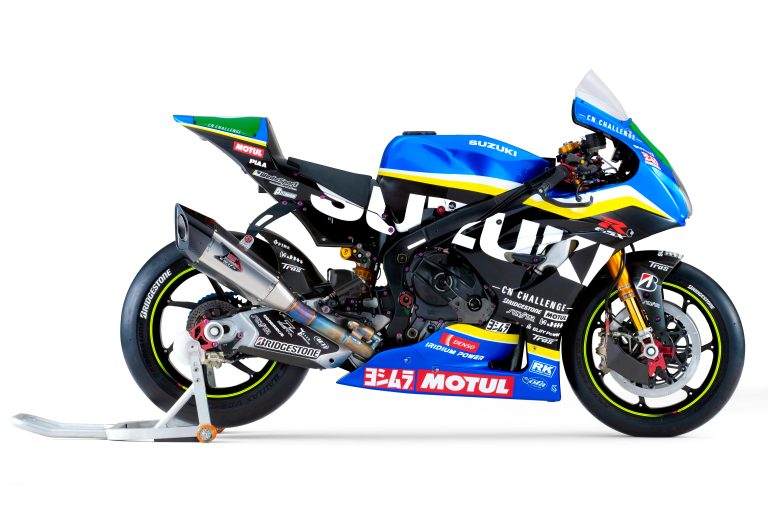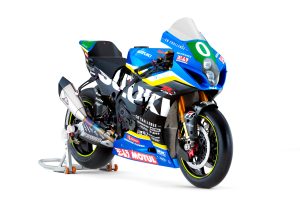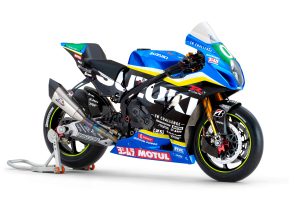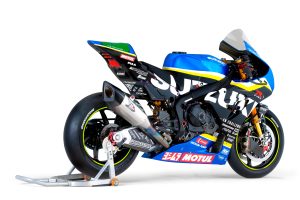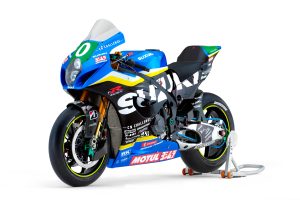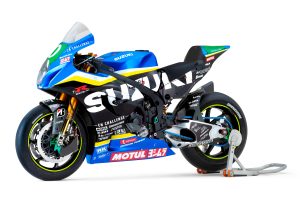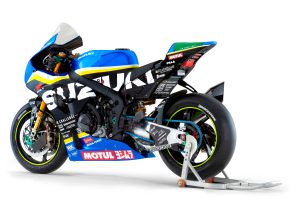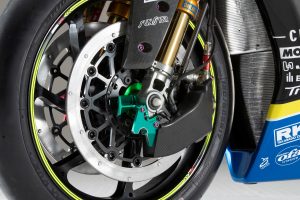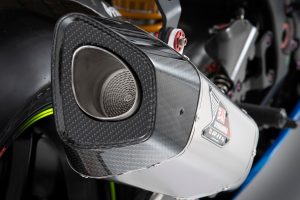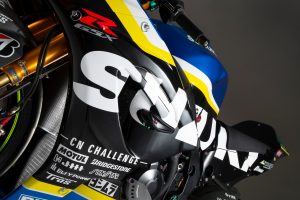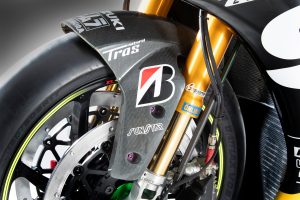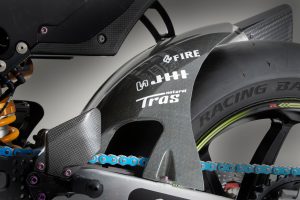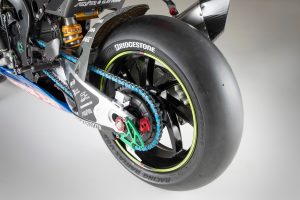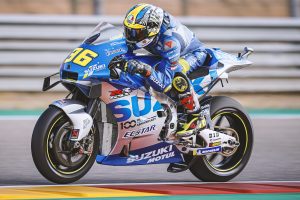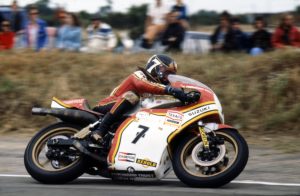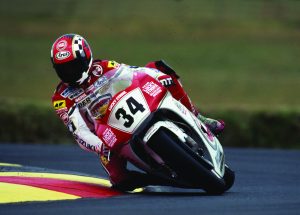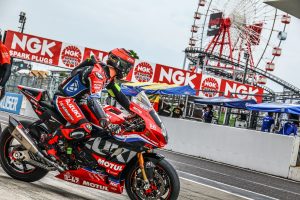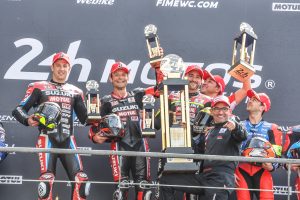Suzuki is making a powerful statement when it comes to its commitment to the future of motorsport and sustainability by entering the world famous Suzuka 8 Hour endurance race with a superbike project that embodies a vision of eco-conscious racing, from sustainable fuel to innovative tyres and oil.
Car and motorcycle racing have historically been the proving grounds for new technologies, expediting development through competition. This year the Japanese manufacturer will enter the prestigious endurance race with a GSX-R1000R that uses 40% bio-sourced sustainable fuel from Elf. Lubricating the machine’s four-cylinder engine will be an engine oil from Motul, made from a bio-sourced base oil. Controlling emissions will be an exhaust from renowned manufacturer and tuning house Yoshimura, complete with catalytic converter.
However, it is not just in the engine where Suzuki is embracing sustainable technologies. Brake dust forms a large part of vehicle emissions. In an effort to combat this, Suzuki will use low-dust pads from Sunstar Engineering, putting them to the test in one of the most gruelling settings imaginable.
Further outlining Suzuki’s dedication to eco-friendly competition are tyres from Bridgestone that use an increased ratio of recycled materials, and front and rear fenders made from a natural flax fibre, supplied by Bcomp. Racing bodywork is provided by JHI and utilises recycled carbon materials. From front to back, the GSX-R reflects Suzuki’s dedication to environmental responsibility.
Toshihiro Suzuki, president of Suzuki Motor Corporation, expressed gratitude for the opportunity to showcase the brand’s project, and emphasised the link between racing and improving products for consumers in the future.
“I would like to thank the FIM, EWC organisers, and Suzuka Circuit, who have given us this opportunity to participate in the Suzuka 8 Hours with sustainable fuel,” he said. “Suzuki has been making efforts in re-allocating resources toward promoting the development of sustainability-related technologies.
“Endurance World Championship is an extremely demanding race series for the machine, riders, and the team, forced to make long hours of running. By making development of sustainable fuel and other sustainable items of Yoshimura Japan, who has been working alongside us for a long time, and other partners in such a challenging environment, I believe that it will lead not only to improving Suzuki’s environmental performance technologies, but also to contribute to personnel development and to increase motivation, which will be linked to making even better products in the future.”
Tsuyoshi Tanaka, executive general manager of motorcycle operations, added, “I believe this initiative has a very significant meaning to realise carbon neutrality, especially for mid to large displacement motorcycles, for which we believe combustion engines will still be needed.
“I can say with confidence that endurance racing, which simultaneously demands running performance and endurance, is the optimal place for testing and development of not only fuel but also various sustainable items, and it is an activity that would revitalise the future of the motorcycle industry.
“We will not make it a one-time initiative but make firm efforts so that we can continue the initiative by aiming for higher goals in the years to come.”
Suzuki has not yet announced its riders, but the team – which will enter under the banner Team Suzuki CN Challenge – will be headed by Shinichi Sahara, who boasts extensive experience having headed up racing projects in World Superbikes and MotoGP for Suzuki, which most recently led to the winning of the 2020 MotoGP world championship.
The 45th running of the Suzuka 8 Hours will take place from 19-21 July at the Suzuka Circuit in Mie, Japan.
Suzuki’s racing history
Suzuki has been racing motorcycles almost as long as it has been making them, with its first victory coming at the 1953 Mount Fuji Hill Climb. Since then it has won races and titles in endurance championships, world and domestic superbike championships, and in the blue riband Grand Prix series.
Arguably the most famous racer to win on Suzuki machinery is Briton Barry Sheene, who took two world titles, winning in 1976 and 1977. Five other premier class world titles followed, with the latest coming in 2020, courtesy of Spaniard Joan Mir.
Away from prototype competition, Suzuki has focussed on durability and reliability as well as performance, winning countless Endurance World Championships with its GSX-R. Since its launch in 2001, the Suzuki GSX-R1000 has won 14 world titles in endurance competition.
